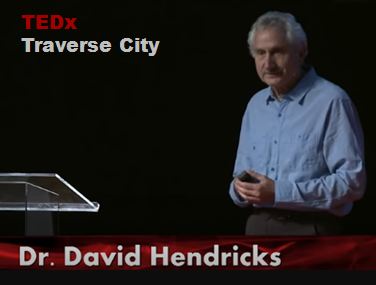In this TED Talk, Dr. David Hendricks goes into depth on how our brains can be physically changed through training and experience, or, exercising knowledge. This is something that has always fascinated me. My question has been: Why is mental growth and change so possible for some and so much less possible for others?
It turns out the answer has to do with a physical change in our brains that comes from conscious choice and commitment. Learning, change, and growth, all take time. They take repetition. They take commitment. They take, you could say, a certain amount of faith. That is, faith that the effort will pay off.
Nobody takes in a tiny bit of information and is changed as a result. The result we can get from that tiny bit of information is to become motivated to do more. It’s the commitment to do more that will then lead to embracing and exercising a commitment to achieve the desired result. The new insight is that training and exercising our brains creates a physical change in the brain and works just as effectively as training and exercising our bodies.
We get training for a reason. Nobody is born with the skills they use to earn a living. We learn, apply and practice those skills until they become something of value to someone else. So think of training the mind the same way you would think of training your body. It takes time and commitment. There is a great deal of difference between being affected in a moment, which is a glimpse of change, and being truly changed. That difference is you, your choice and your commitment.
We hope you enjoy this fascinating TED Talk. As a quick note before you start, Dr. Hendricks approaches the subject with some references to his personal story. He mentions his recovery from alcoholism, which led to his discovery of Buddhist teachings, which were then reflected in his clinical practice. His clinical practice is focused on resolving addiction and abuse survivor issues through treatments that, among other things, physically alter the brain through mental exercise. Just thought it would be appropriate to let you know more about the nature of the talk before you proceed. The first ten minutes defines the problems and is quite dark. The remainder of the talk focuses more on the solutions, which are fascinating. Enjoy.

